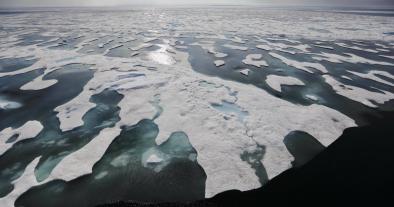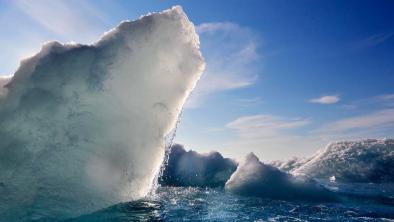Science Source
Unusually high temperatures at the North Pole, winter 2016
- States that in 2016, the North Pole and the surrounding Arctic region saw record-high temperatures in November and December and record-low ice extent
- Mid-November saw an early winter “heat wave” with the temperature on November 11 reaching -7 ºC (19 ºF) – that is 15 ºC (27 ºF) above normal for the time of year
- The monthly mean November temperature was 13 ºC (23 ºF) above normal on the pole
- Quantifies how rare the event was by computing the November-December averaged temperature around the North Pole (80–90 ºN) in the ERA-interim reanalysis augmented with the ECMWF analysis and forecast up to December 25 and persistence up to December 31
- Reconstructs Arctic temperatures back to about 1900, which clearly shows how the warmth in Nov-Dec 2016 is unprecedented over that period
- Finds that a warm event like the one in Nov-Dec 2016 would have been extremely unlikely in the climate of a century ago
- The probability was so small it is hard to estimate, but less than 0.1 percent per year
- The model analyses show that the event would also have been extremely unlikely in a world without anthropogenic emissions of greenhouse gases and aerosols, attributing the cause of the change to human influences
- Concludes that if nothing is done to slow climate change, by the time global warming reaches 2 ºC (3.6 ºF) events like this winter would become common at the North Pole, happening every few years
Related Content
Science Source
| Geophysical Research Letters
Accelerated increase in the Arctic tropospheric warming events surpassing stratospheric warming events during winter
S.‐Y. Simon Wang, Yen‐Heng Lin, Ming‐Ying Lee et al
Science Source
| Bulletin of the American Meteorological Society
EEE 2016: CMIP5 Model-based Assessment of Anthropogenic Influence on Highly Anomalous Arctic Warmth During November–December 2016
Jonghun Kam, Thomas R. Knutson, Fanrong Zeng et al
Headline

Dec 12, 2017 | Mother Jones
The Arctic is warming faster than at any point in the past 1,500 years
Headline

Nov 27, 2017 | CBC News
Arctic climate change being felt farther south, scientists say


